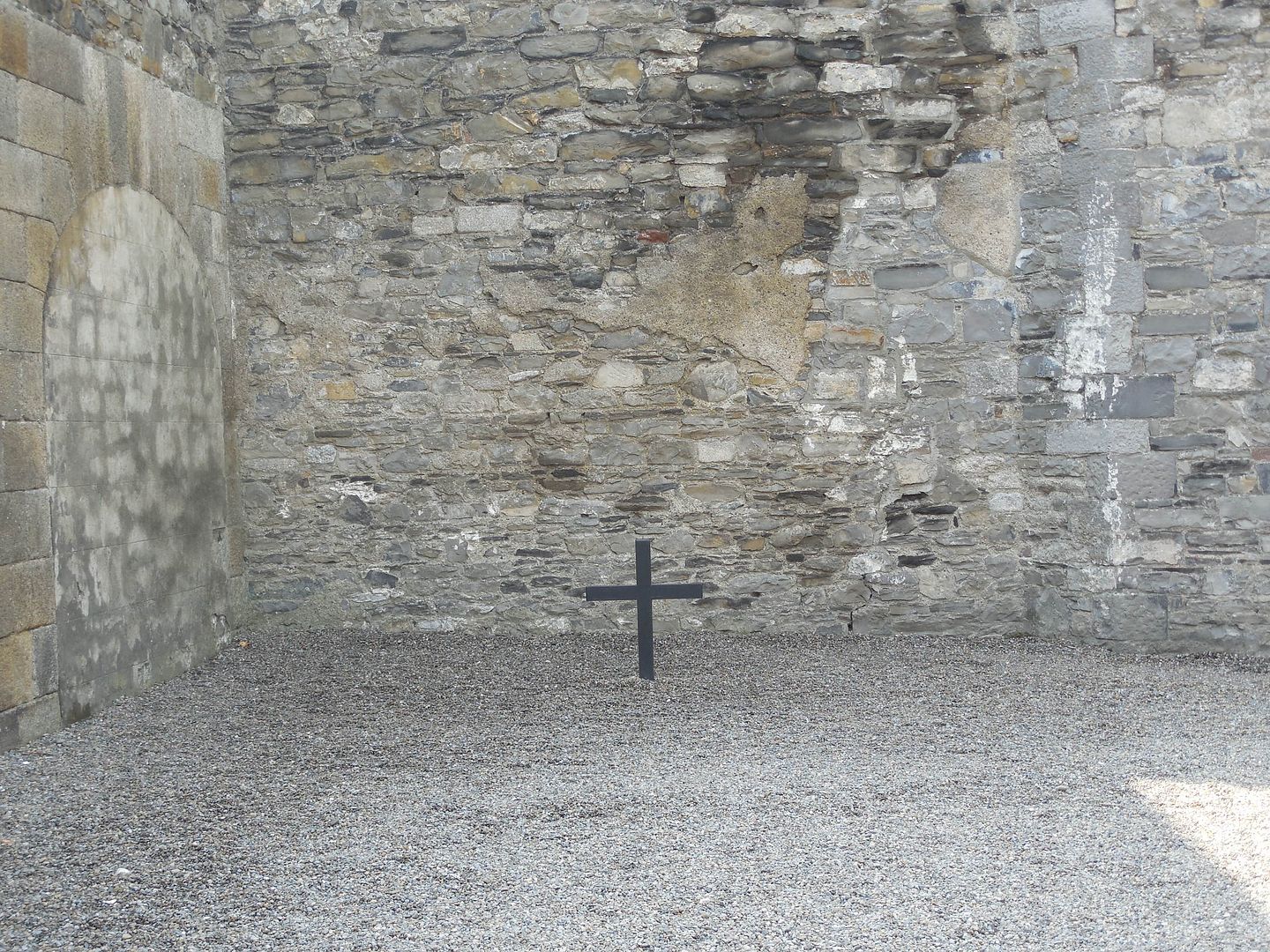2016 is the 100-year anniversary of the Easter Rising. If that doesn't ring many bells with you, the short version is that it's roughly the Irish equivalent of Lexington and Concord plus July 4, 1776. Not surprisingly, Ireland is in all-out commemorative mode.
I've just come back from there. I didn't discuss Irish politics, much less sing Irish political songs. It's not my business to visit another country and tell them how to run it, or how to understand its past. Now that I'm back, though, I have some thoughts.
There's a standard narrative of the 1916 Rising. The rebels are heroic visionaries, and their actions--however destructive in the short term--are ultimately justified by History. The corollary is that there was no better way to achieve this righteous outcome.
It's always comforting to believe this sort of thing. We Americans have a similar standard narrative. Here's one difference, though: the American Revolution was a revolution of ideas*. We didn't invoke a mystical moral right of nationhood based on territory or ethnicity or identity. We invoked, rather, an idea--the idea that monarchy is wrong in principle. We didn't just reject what Britain was doing; we rejected the philosophical basis for doing it.
Reading the Proclamation of the Irish Republic, I see an assertion of an ethnic identity. I see a rejection of all things English/British. I see a lot of (justified) anger at centuries of British misrule and colonialism and exploitation**.
We declare the right of the people of Ireland to the ownership of Ireland and to the unfettered control of Irish destinies, to be sovereign and indefeasible. The long usurpation of that right by a foreign people and government has not extinguished the right, nor can it ever be extinguished except by the destruction of the Irish people. In every generation the Irish people have asserted their right to national freedom and sovereignty; six times during the past three hundred years they have asserted it in arms.What I don't see is any assertion of principle. And that bothers me. In the century since 1916, we have seen too much cruelty based on metaphysical ethnic nationalism. Isn't this at least veering towards the principle of Volksgeminschaft? Irish = Not-British = Good, which in turn means that British = Evil, which in turn justifies anything.
That wasn't the majority position at the time, either. From what I've read, the most popular Irish political parties in 1916 weren't separatists at all; they were advocates for Home Rule (now known as devolution). In other words, there plenty of people were willing to believe that they could be both British and Irish.
They may have been wrong. The government response to the Easter Rising convinced many of them that they were.
Kilmainham Gaol, Dublin
Still, as an American, I'm comfortable with the notion of a hyphenated identity. And as a reader of history, I don't buy the dictum that "war is the continuation of politics by other means." Political violence is failure. That's true in 1776, 1916, 1861, 1914, 1939 ... Sometimes, perhaps, the failure is inevitable; but inevitable failure is failure nonetheless.
*Yes, I am vastly oversimplifying here. I don't mean to imply that every Minuteman was a political philosopher, or that the public at large was motivated entirely by an abstract desire for a more just society. In every war, individuals fight for a wide variety of reasons. There is also a collective purpose at work, though, and it makes a difference.
**British practice and policy in Ireland were infinitely more destructive than anything that happened in the American colonies. Religious persecution, prejudice, social stratification, administrative incompetence, broken treaties ... you could cogently argue that Britain had already forfeited any moral right to exercise authority over Ireland. By contrast, Americans in 1775 were already the free-est, least-taxed people on earth.

Did you get to the prison then?? I was hoping to visit in 2012. It seems like it must be a powerful and sombre place.
ReplyDeleteWe did. Powerful and somber expresses it very well. It's not just that it would have been a cruel place to be held, particularly in the old wing. It's also the sense that, as hard as life is, humans keep inventing ways to make it harder.
DeleteI wonder if people in the colonies really looked at independence as a philosophical point. We've had 240 years to build up the story, and there were a lot of other political changes at the time. My guess is that most people in the colonies just didn't think of themselves as part of the mother country anymore. Plus, they were further removed geographically. The relatively diverse population made the ethnic rule assertion implausible.
ReplyDeleteThere was a lot of political upheaval in that period, democracies overwhelming monarchies. Maybe some of that philosophy is the real reason for independence. But maybe it was a convenience, too.
I'm sure most of them didn't, not to begin with. I expect, for example, that the "embattled farmers" of the Battle of Concord weren't thinking philosophically; they were angry because the government was sending soldiers against their homes. By the same token, I expect that many of the young Germans who conquered France in 1940 weren't particularly ardent Nazis. I still argue, though, that the collective purpose of any war--the purpose articulated by those who sound the bugles and write the proclamations--is a matter of very significant weight. Otherwise you'd have to conclude that there's no moral difference between the sides in any war, which strikes me as self-evidently false.
DeleteIt's also true, and very relevant, that Enlightenment ideas were in the air at that time and place. John Adams wrote that "The Revolution was effected before the War commenced. The Revolution was in the minds and hearts of the people; a change in their religious sentiments of their duties and obligations…. This radical change in the principles, opinions, sentiments, and affections of the people, was the real American Revolution." (quote copied from Wikipedia, but cited there)